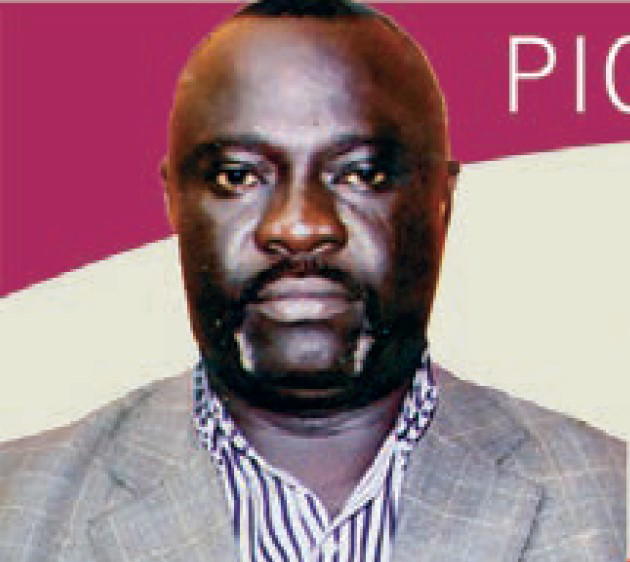Muhammadu Buhari, GCFR (1942-2025), by Adekunle Adekoya

THE last time a president of Nigeria died was May 2010, when Alhaji Umaru Musa Yar’Adua passed on, after an illness. Since then, all the other has-beens of the office of president have remained alive. They are still around — General Yakubu Gowon, General Ibrahim Babangida, General Abdulsalami Abubakar, Chief Olusegun Obasanjo, and Dr. Goodluck Jonathan. Buhari passed on last Sunday at a London hospital and has since been buried.
As a child and primary school pupil, I remember that the Yakubu Gowon tenure were halcyon days for most Nigerians; unlike now, money was not a problem, the real problem was how to spend the money and on what. In primary school, I remembered our National Day celebration, October 1, with nostalgia. It was a day schoolchildren of my generation looked forward to, every year. Our school authorities prepared sumptuous dishes for us on that day, to celebrate our independence, and each of us got a bottle of mineral drink to wash it down with, funded by the Federal Government.
I really wonder if that could be done now; the headmaster will never get the money. I also remember the day Nigeria changed from right hand drive to left hand drive. It was April 2, 1972. I was in Primary 5. We were lined along the road by my primary school, Wesley School, Oko I, at Ita-Oba, in Sagamu, Ogun State to see how vehicles will now drive on our roads, compared to what we were used to, which was inherited from the British. The British still drive on the left with right-hand vehicles till tomorrow. Those who frequent London will testify. After General Gowon came General Murtala Muhammed, who was assasinated on February 13, 1976.
I was in secondary school then. And after him, General Olusegun Obasanjo; then Alhaji Shehu Shagari. Shagari was about three months into his second term in office when the military, in a coup, ousted him on December 31, 1983. That day I was at home in Ijebu-Ode, enjoying the Yuletide season after a break from my place of primary assignment in Ijero-Ekiti, old Ondo State then. I was a “Youth Corper” then. A gangling general who was General Officer Commanding 3rd Armoured Division in Jos, Muhammadu Buhari, emerged the new military Head of State.
The new Head of State promptly herded many people who ran the civil administration his junta toppled into detention, after they were accused of financial misdeeds. A regime of moral reform, fronted by the now famous War Against Indiscipline, WAI, was instituted and enforced by the stern-looking Chief of Staff, Supreme Headquarters, Brigadier Tunde Idiagbon. What I remember most about that regime, apart from WAI, was the currency change executed by the Buhari regime. I remember clearly because it was a time many Nigerians suffered untold deprivation as they queued for days to exchange their old notes for the new ones. My late grandfather, Pa Joseph Adegboyega Adekoya, was pushed down on a queue in front of the defunct National Bank branch in Ijebu-Ode.
A sympathetic person who was in Abeokuta the following day told my father, who at the time was Treasurer of the Abeokuta Local Government, about his father’s ordeal. My dad, of course, did not know that his father had that much money in his possession to change. At Ijero-Ekiti where I was a member of the NYSC, food was scarce; there was no money with which to buy what was available. Many people had old notes that nobody was willing to accept. In that town, for weeks, only NYSC members and other civil servants paid with the new notes could enjoy some semblance of living. Things were just terrible.
Nigeria ran on, and in August 1985, the Buhari regime was toppled and General Babangida emerged the Military President. The rest, as they say, is history, until 2014, when the Katsina general emerged presidential candidate of a recently formed party, the All Progressives Congress, APC. Nigerians, with their usual resilience, watched events unfold from when Buhari took over from Dr. Goodluck Jonathan in 2015, till 2022, when few months to the election that will end his two terms in office, he embarked on a policy to re-design the national currency.
Like it was in 1984, it was another season of deprivation for most Nigerians. People had money but could not get it to spend as the new notes were very scarce. Again, like in 1984, human dignity was at its lowest ebb as hunger ravaged the land, while the already impoverished sector of the populace sank deeper into misery and multi-dimensional poverty. The resultant high prices from too much money chasing too little food is yet to abate till today.
One other thing about Buhari. One of the justifications given for toppling the Shagari civilian regime was because “our hospitals had become mere consulting clinics.” It is a millennial irony that somebody who led a junta that gave this excuse for toppling a democratically-elected government will spend 225 days of his alloted 1,460 days in office on medical leave abroad. That was seven and a half months! He was unable, in all his eight years in office, to impact the healthcare system in any visible, impactful way, such that he passed on in a hospital in a foreign land!
Why couldn’t he have taken action to see that other world leaders could come to hospitals in Nigeria? Surely we have the resources to make this happen! He was also unable to impact positively on various aspects of national life that needed attention. Apart from completing the rail projects started by previous administrations and the Second Niger Bridge, it is safe to say that Buhari’s tenure as president, 2015-2023, were years of the locust. We are still reeling from the effects. And those are what I remember Buhari for. TGIF.
The post Muhammadu Buhari, GCFR (1942-2025), by Adekunle Adekoya appeared first on Vanguard News.







